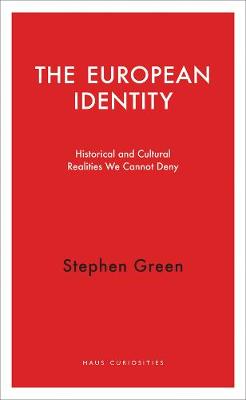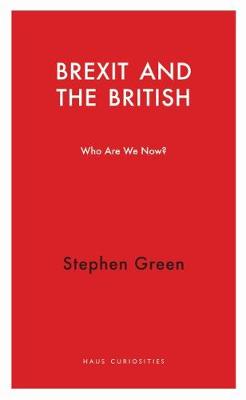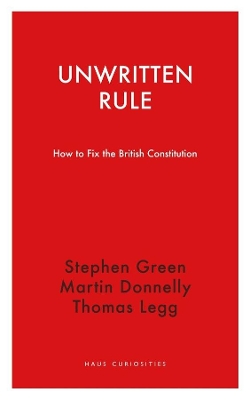Haus Curiosities
1 primary work • 3 total works
Book 6
Is there any such thing as a European identity? Amidst all the kaleidoscopic variety what - if anything - do 28 members of the European Union have in common? The facts of history have created shared interests and cultural connections that are in the end more important than the differences. We know we are different from Asia; and we are more different from America than we - perhaps especially the British - think. So in a 21st century of globalisation and emerging great powers, Europe must discover and define that common identity. This is a challenge for all the big states of the EU.Europe clearly has something distinctive and vitally important to offer: it is the experience of a unique journey through centuries of exploration and conflict, errors and learnings, soul-searching and rebuilding. It is an experience of universal significance. One way or another, the world will have to learn these lessons, and it will certainly be the poorer if this European voice is not heard.
Whatever the eventual outcome of the Brexit negotiations, the critical questions remain: what does the Referendum vote tell us about the sort of society we are? Why was the result a shock to so many? Did we not understand how divided we were? Old against young, provincial against metropolitan, Scotland and London against much of the rest of England and Wales. Instead we must look at how our failure over decades to invest properly in the country's societal future and the life chances of the young shaped the vote this summer. Economic growth allowed Britain to live beyond its means. The gap in the skills base was concealed by immigration. The shortsightedness and dishonesty of our political class can obscure the issue; criticising the policies and practices of the establishment - important though that is - allows us to ignore the uncomfortable truths about ourselves. In Brexit and the British Stephen Green argues that it is time to acknowledge that underlying all the sound and fury of the Brexit debate was a question - whether or not fully recognised - about our identity. Are we British different, special and capable of finding our own way in the world?
Who are we, who call ourselves British? Is it too easy for Remain voters to blame Brexit on post-industrial decline in the Labour heartlands, scare-mongering and deluded Little Englanders? Or is our identity more complex, deep-rooted - and perhaps, in some sense, troubling - than those of other European nations?
Who are we, who call ourselves British? Is it too easy for Remain voters to blame Brexit on post-industrial decline in the Labour heartlands, scare-mongering and deluded Little Englanders? Or is our identity more complex, deep-rooted - and perhaps, in some sense, troubling - than those of other European nations?
Not since Ireland broke away from the United Kingdom a century ago has the British state been so fragile. Northern Ireland now operates under trading rules that are legally separate from the rest of the nation. In Wales, support for independence is running at a historical high. Above all, Scotland is more conscious than ever of its individual identity and has aspirations for a European future. With public trust and confidence in government at record lows, the UK faces a crisis that can only be repaired by a new constitutional settlement. Unwritten Rule calls for a radical realignment, embracing a federal approach that would accommodate devolution as the best way of bringing about a successful and diverse national life, increasing democratic control over local and national decision-making, and modernising our national political structures. It will be an arduous journey, but wide-ranging reform is vital if we are to ensure that the United Kingdom not only survives into the coming decades but thrives.


